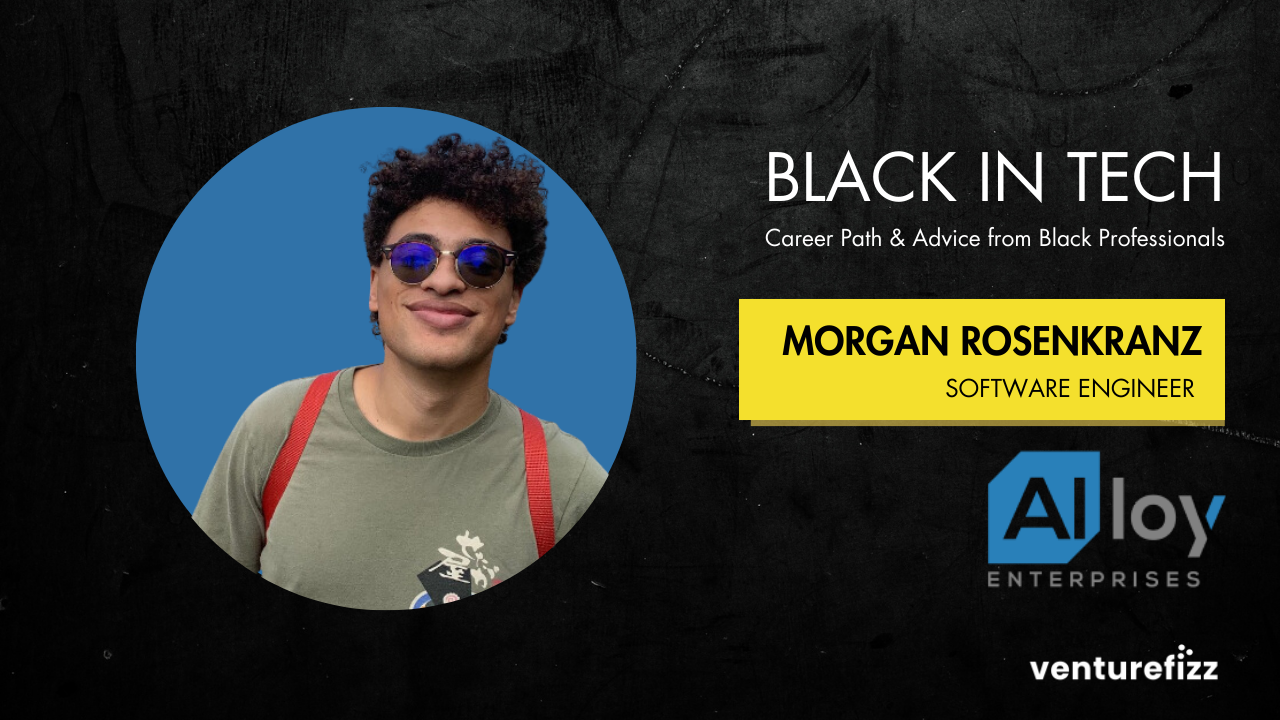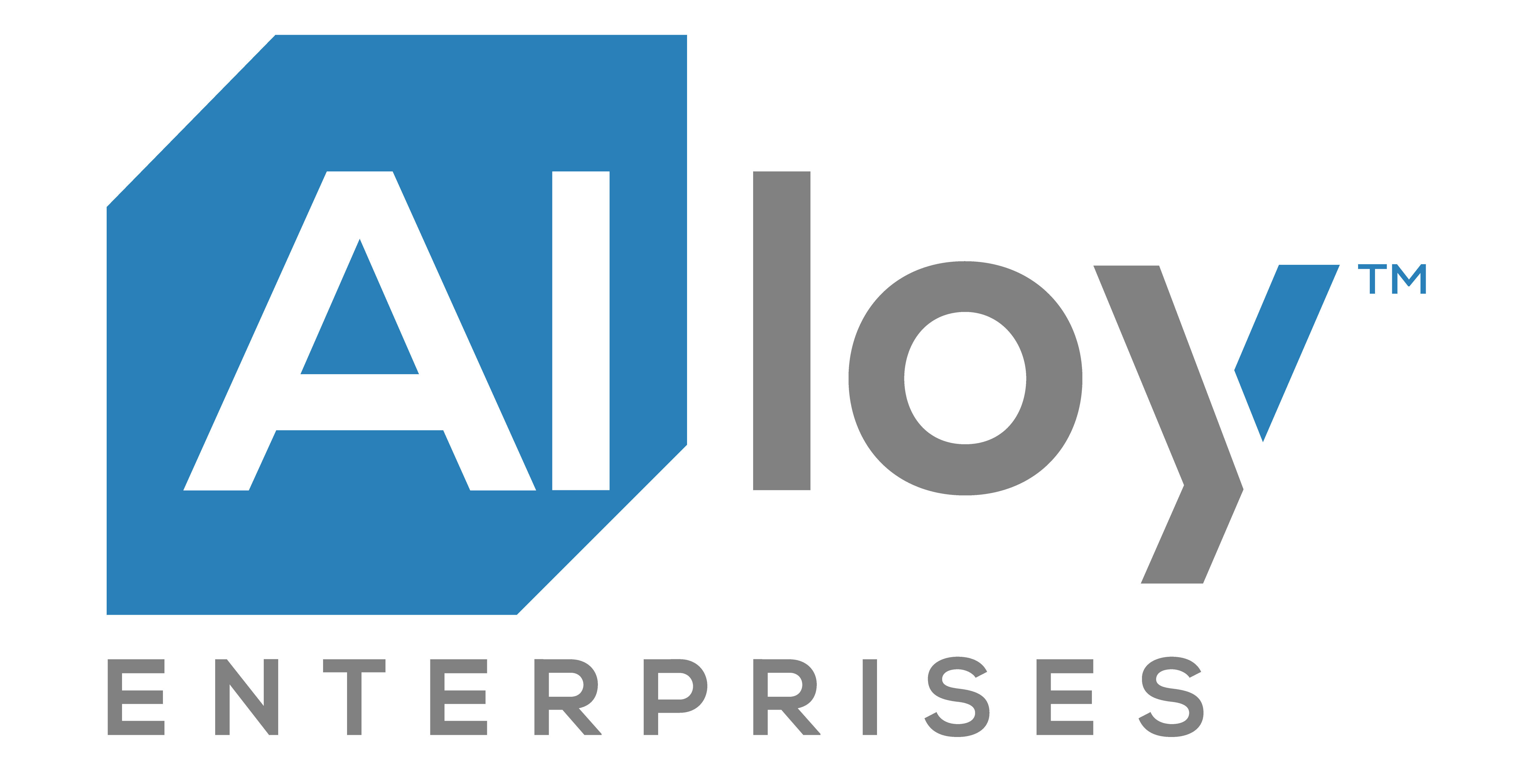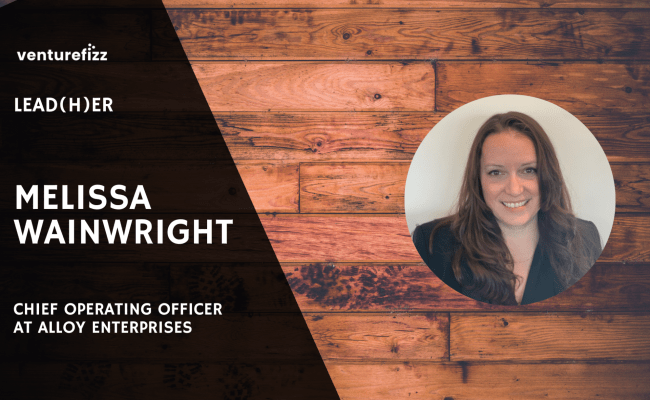Our Black in Tech series features the career path & advice from Black professionals in the tech industry. In this Q&A, Morgan Rosenkranz, Software Engineer at Alloy Enterprises shares his story.
Where did you grow up and what were you like as a child? What was your family like?
I, and my two younger sisters, were raised by a Black mom and Jewish dad. Our family dynamic has always been fun, warm, and nurturing. Growing up I was always asking questions about how and why things worked. My parents definitely fostered this curiosity in me. My Dad is a lawyer and he would often explain the core issues of the cases he was working on and ask for all of our input. I loved these dinner table conversations because I came to understand that his job was to become an expert in the small breadth of the problem at hand and condense that knowledge into an explanation for someone who has only read the brief. My mom would always joke that I was going to make nanobots or something like that. Maybe one day!

Where did you go to college? What did you study and what did you do after graduating?
I studied Computer Engineering and Computer Science at Northeastern University. I knew even before I applied that I learned best by doing, so the Co-op program was perfect for me. In my five years at Northeastern I had the opportunity to work at three different companies for 6 months at a time. My final Co-op was at Alloy Enterprises, which at the time was a small tight knit team of only 16. This was the first time I could actually see and hold the results of my work. The tangibility of my work was so different from anything I had done before that I was instantly hooked. I worked at Alloy part time for my last semester and then joined full time after I graduated.
What inspired you to get into the tech industry?
When I was little, my curiosity and creativity led me to deciding I wanted to be an inventor, whatever that is. Learning to code in middle school ended up feeling exactly like what I had imagined being an inventor was. The only limit of what I could build was my imagination.
What has your career path looked like in tech and the various positions you’ve held before joining Alloy Enterprises?
My previous Co-ops before Alloy Enterprises were more in the medical field. During my first Co-op at Omega Therapeutics, I made tools for the scientists to use in the lab. I was given a lot of freedom in what to use and the opportunity to learn the R programming language and how to use different Python data science libraries. Then at Medtronic, I worked on a virtual reality training software for a surgery robot. I enjoyed working on internal tools because it gave me a short feedback cycle and insight into how people in other disciplines worked and thought about problems.
Can you share the high-level responsibilities of your current position as Software Engineer at Alloy Enterprises?
I work on both of our two main software projects: Device and Slicer. On the slicer project, I implement feature requests from other teams that will allow us to handle new geometries or improvements for our process. On the device, I work on taking the output of the slicer and using it to control the construct machine which cuts layers out of sheets, among other things.
What has attributed to your success thus far and what types of obstacles have you had to overcome along the way as a Black professional?
Being mixed in a country that tries to be so black and white is difficult. People try to tell you that you have to be this or that you’re not “Black enough” because of that. I think that having struggled with identity has made me stronger in my character and self-confidence. I know who I am and what I want to do. A lot of our society is based on these false binaries and I think living somewhere in the middle has made me more aware of nuances that others would overlook.
What types of programs and initiatives does Alloy Enterprises have that support diversity, equity, and inclusion?
Alloy Enterprises has a really inclusive culture and that was one of the main reasons I came back after graduating. The company has grown a lot over the last year or so. One of the main reasons we’ve been able to maintain this great culture is that the hiring managers get feedback from so many people. When we were hiring for the software team, everyone on the team had a chance to participate in interviewing the candidate. We also had members of other teams give their feedback on cultural fit. We’re also big believers in the Co-op program. It gives us an opportunity to work with people we might not otherwise.
What advice would you give to other Black professionals who are interested in joining the tech industry?
My advice is to unapologetically be yourself and pursue your interests to the fullest. It’s hard to start in a world and industry where people expect you to be or look a certain way based on preconceived notions of what a Black person or engineer is supposed to look or act like. Why pretend to be someone you’re not? I’ve been lucky enough to work in an environment that values everyone’s individuality as having different perspectives makes us a better team. I think one of the best qualities in an engineer is the passion with which they tackle the problems at hand. Skills can be taught but you cannot teach someone to pursue answers they have no interest or investment in. At Alloy, I’m surrounded by these types of people who are both deeply interested in their realm and in sharing their knowledge with others, regardless of discipline.
While general awareness of the problem of diversity in the tech industry is a step forward, to make a lasting change, real actions need to be taken. Do you have any ideas or suggestions on what companies or employees can do to step up and make a difference?
Awareness is a great first step but to make lasting change I think companies need to focus on putting Black people in positions of power. It’s one thing to try to hire more POC employees but it doesn’t make much of a difference if none of them are able to make change outside of their individual contributions. Instead a Black manager or COO could be more effective in making a difference by focusing on change from the top down.






